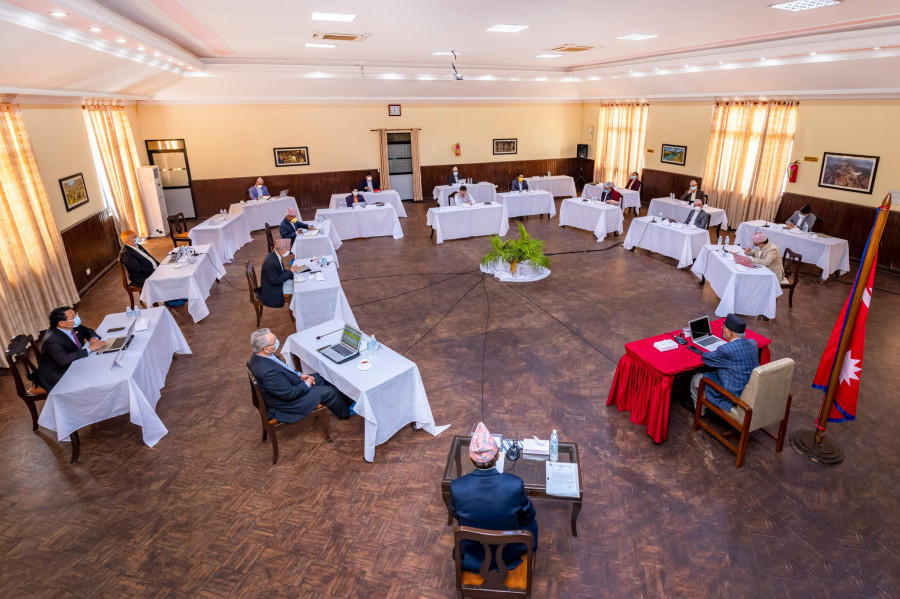Editorial
Customise pandemic response
The government must devolve power to respond to the pandemic effectively.
The Supreme Court's order last week directing the government to evaluate prevailing legislations on epidemics, and enact a new pandemic act has brought some respite for public health experts who have long been complaining that the existing legal framework is too outdated to deal with the Covid-19 crisis. The government's response to the pandemic has been haphazard at best as it has remained unsure about its next step since day one of the lockdown. Over two phases of the stay-home order, the government has failed to come up with a specific answer as to how it intends to handle the problems that come with the pandemic and the lockdown, or even who exactly is responsible for addressing them. The concern among public health experts and the general public, that the imposition of one prohibitory order after another under the Panchayat-era Infectious Disease Act 1964 may not address the pandemic holistically, is thus not unfounded.
Add to this the concern by the apex court that the current pandemic law is insufficient to deal with the multiple issues surrounding the pandemic, we have our answer: The government must pull up its socks to ensure that its response to the pandemic is not based on an ill-thought-out law of a bygone era that does not even recognise the socio-political conditions of the country today. The Act in question does not envision contemporary Nepal's federal structure that envisions the devolution of state power when it says that the government of Nepal—by which it means a centralised power structure system that precedes federalism—may designate an official to make arrangements to root out or prevent any infectious disease.
The Act further specifies that the chief district officer (CDO) 'shall have the powers to try and settle cases on offences committed under this Act'. In effect, what the Act does is empower the CDO to act as the coercive authority acting on behalf of the federal government when it comes to responding to the pandemic as if it were a law and order situation. As CDOs continue to decide who gets to step out of their homes and how a district's response to the pandemic is going to be, the federal government and the provinces are seen to be ill at ease with each other at a time when they should be working in tandem. However, the current pandemic is a public health problem that needs to have public health experts calling the shots when it comes to putting up a coordinated and localised fight against the virus.
The very idea of institutionalising federalism is for the separation of powers, and the distribution of authority between the federal government and the provinces. Administrators who represent the federal power are ill-equipped to appreciate the economic, political and social situation of the provinces and local levels. Federalism has been dealt a body blow as chief district officers, and not locally elected governments, are seen deciding whether a particular district or locality is to go under yet another lockdown. As administrators go on imposing lockdowns as if it were the only weapon against the pandemic, the underprivileged and the destitute continue to go to bed on empty stomachs each night. The government must immediately work to clear the current impasse: Act fast to respond to the pandemic with an updated legal apparatus as well as put a bridle on its administrators to ensure that response to the pandemic does not turn out to be brutal on citizens.




 22.3°C Kathmandu
22.3°C Kathmandu














